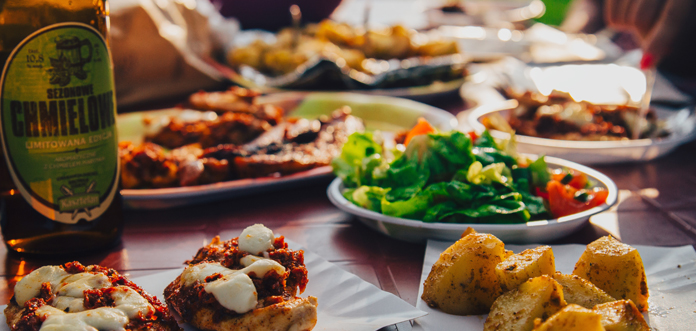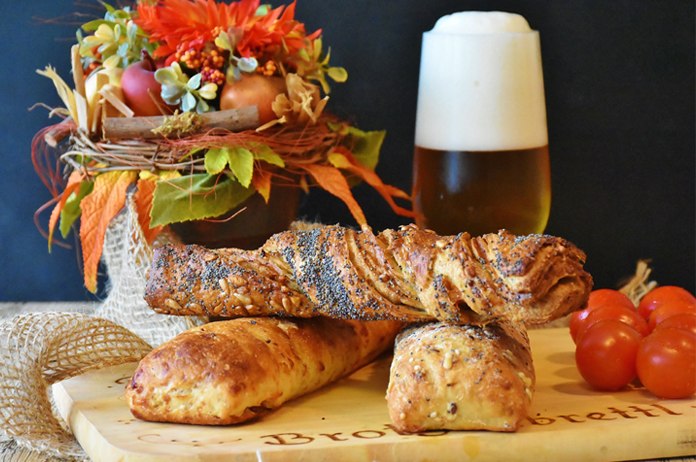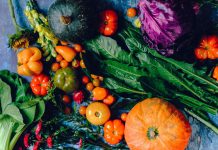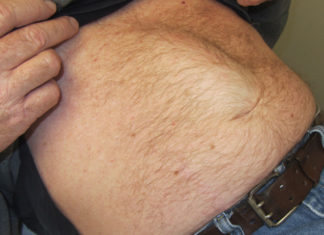A diet low in carbohydrates is essential to lose weight and control other health issues like diabetes. One must scratch certain high-carb foods out of the list like beverages, sugary and sweetened food, candies, cakes, etc.
What becomes more difficult is that even the staple food intake needs to be minimized. Some foods high in carbs are beneficial also but not suitable if one is under a low-carb diet. Your food intake should be measured to keep the daily carb intake within limits.
Low-carb diets generally contain 20 to 100 grams of carbs each day, based on a person’s tolerance level. The first step to calculate carbs is to figure out the content of it in each food.
For example, some people do not know that milk contains carbohydrates and mistake it for protein-rich food. Also, brown rice and fruits contain carbohydrates.
Let us look through the examples of foods high in carbs to learn about them and avoid them as much as possible. But, first, let’s understand exactly what carbohydrates are.
What Are Carbohydrates?
Carbohydrates are molecules carrying carbon, oxygen and hydrogen atoms. Carbs, fat, and protein are the three primary macronutrients.
Dietary carbohydrates are usually divided into three categories – sugar, starch, and fibre. Category sugars include sweet and short-chain carbs like glucose, galactose, fructose, and sucrose. Starches include a long chain of glucose molecules that gradually breaks down into glucose.
The third category of fibre is usually the hardest to digest, and the bacteria in our digestive system use some of the fibre. Carbohydrates are the best source of energy. Carbs break down and transform into glucose and provide us energy.
Carbs can also turn into fat. Fibre does not offer energy directly and instead helps to feed the bacteria of the digestive system. On being fed, these bacteria form a fatty acid that provides energy to the cells.
What Foods are High in Carbs?

Some foods are high in carbs and can turn into fat. So, let us see now what foods are high in carbs to avoid them on a diet that is for low-carbs.
1. Bread and Grains
Bread acts as a vital staple food for many people around the world. Bread is of various forms like flatbread or rolls or loaves etc. But, all these are high in carbs. They can be whole grain bread or bread of refined flour.
However, the carb count will vary depending on the amount and specific ingredients of each type.
For example, one slice of white bread has 14 grams of carbs, and whole white bread carries 17 grams of carbs, a flour tortilla of 10 inches contains 36 grams of carbs, and a 3 inches bagel contains 29 grams of carbs, etc. One can prepare low-carb bread at home too. Grains are mainly high in carbs, and this includes wheat, rice, and oats also.
2. Certain Fruits
Fruits and vegetables should be taken in higher amounts to avoid ill health conditions like heart diseases and cancers. But some fruits can be high in carbs and not suitable to intake in large quantities.
It is better to avoid fruits like the lovely ones and dry fruits such as bananas, raisins, mangoes, dates, and pears on a low-carb diet. So, have them only in small quantities while on a low carb diet.
3. Starchy Vegetables
Vegetables are generally called ‘free foods.’ They are usually rich in fibre that helps with weight loss and blood sugar. But, few high-starch vegetables carry more carbs compared to fibre and thus should be taken in limited quantity.
Starchy vegetables like potatoes, sweet potatoes, corn, and beets are examples that should be avoided as much as possible.
4. Pasta
Pasta is a staple food for many and a versatile dish. But, this too is high in carbs. One cup of pasta, when cooked, contains carbs of 43 grams. It is better to shift to whole wheat pasta, which carries 37 grams of carbs. Moreover, this has more fibre than the normal one. On a low–carb diet, it is best to avoid pasta and spaghetti.
5. Cereal
By now, you know that consuming sugary cereals are bad for health. But healthy cereals are still better. Instant oatmeal carries more carbs than steel-cut oats. The latter one is less processed and considered healthier. So, a bowl of cereals itself can be too much for your low carb diet even without the addition of milk.
6. Beer
Alcohol can be enjoyed even on a low-carb diet, provided they are consumed in moderation only. For example, dry wine carries low carbs, and hard liquor almost has no carbs. But, beer is usually rich in carbs. A can of beer includes 13 grams of carbs on average.
Moreover, studies have shown that consuming carbs in a liquid state promotes more weight gain.
7. Sweet Yogurt
Yoghurt is both healthy and tasty. They are versatile too because of their many usages. Plain yoghurt is low in carbs, but the fruit-flavoured or sweetened ones contain a lot of carbs.
Sometimes, they even carry carbs in quantity higher than those of ice creams. It is best to enjoy homemade Greek yoghurt with fruits for healthier benefits.
8. Juice
Juices are not recommended for someone on a low-carb diet. Although juice offers some vital nutrients, fruit juice, especially the packaged ones, are high in carbs and can even cause blood sugar. They can carry carbs even more than soda drinks.
Moreover, the juice is also an example of liquid carbs, which is worse than those derived from solid foods. Furthermore, juice can lead to more hunger and more food intake.
9. Honey or Sugar
Foods high in sugar content like cookies, cakes, and candies must be avoided as much as possible. Even the natural sugar form is also rich in carbs. Moreover, sweeteners like maple syrup and honey also carry almost no nutritional value.
There are also healthier sweeteners rich in fibre, and during a low-carb diet, it is best to choose those options.
10. Chips and Crackers
Chips and crackers are favourite snack foods for all, but they are very unhealthy. Carb content in crackers varies depending on the processing. Even whole wheat crackers contain high carbs.
But, they carry more fibre which makes them comparatively better. Processed snack foods are usually consumed in large quantities within a short duration. It is best to avoid these in a carb-restricted diet.
Make the Right Choices of Carbs
Carbohydrates in their natural, high-fibre form are healthy. The whole single-ingredient carb food is generally healthy for health. This differentiates the good carbs from the bad ones.
It is not always possible to avoid carbohydrates, but one must know which healthier options for consumption are. Here is a list of healthy carbohydrate foods that are relatively good for one.
- Vegetables: All sorts of veggies are great for health. Some great examples of low-carb vegetables include bell papers, broccoli, asparagus, mushroom, spinach, cauliflower, etc.
- Fruits: Apples, guavas, pomegranates, strawberries, watermelons, etc.
- Legumes: Lentils, green beans, kidney beans, peas, etc.
- Nuts: Almonds, chestnuts, cashew nuts, walnuts, hazelnuts, peanuts, etc.
- Seeds: Chia seeds, sunflower seeds, pumpkin seeds, etc.
- Whole grains: Whole and pure wheat, oats, brown rice, quinoa, etc.
People trying to reduce their needs for carbohydrates are only recommended to consume healthy carbohydrate foods, but one must be careful to avoid the quantity.
When following a diet low in carbs, it is important to choose nutritious foods low in carbs. Good carbs can be taken in a restricted amount only, and it is best to avoid the bad ones completely. Your choice of food and its quantity will depend upon your tolerance level for carbohydrates. It is best to consult a nutritionist for your ideal diet routine for weight reduction and better health conditions.






